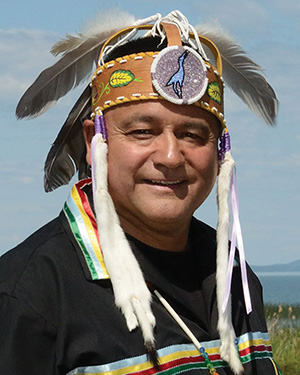UN urges States to do more to respect treaties

GENEVA – States need to do more to honour and strengthen their treaties with indigenous peoples, no matter how long ago they were signed, UN human rights chief Navi Pillay has said in a statement to mark International Day of the World’s Indigenous Peoples on August 9.
“Even when signed or otherwise agreed more than a century ago, many treaties remain the cornerstone for the protection of the identity, land and customs of indigenous peoples, determining the relationship they have with the State. They are thus of major significance to human rights today,” she said.
Treaties often marked a decisive step in ending a period of conflict, exploitation and expropriation, the High Commissioner noted.
“The honouring of treaties has in many cases been described as a sacred undertaking requiring good faith by each party for their proper enforcement. Yet too often indigenous communities are obliged to go to the courts to force States to live up to their promises,” she added.
“The nature of the agreements themselves, with their spirit and contents passed on through elders to future generations, reminds us of their fundamental importance,” Pillay said.
“The fact that exploitation and expropriation continue today underscores the need to do more to protect the rights of the estimated 370 million indigenous people worldwide,” the High Commissioner said.
Anishinabek Nation Grand Council Chief Patrick Madahbee said Canada’s failure to implement treaties made with First Nations is an ongoing obstacle to justice and prosperity.
“While treaties are often trivialized by such adjectives as “ancient” in media reports and political discussions, the principles they established are lofty ones with legal and moral ramifications. Consider: The Constitution Act, Canada, 1982, Section 35 (1): “The existing aboriginal and treaty rights of the aboriginal peoples of Canada are hereby recognized and affirmed.”
Department of Aboriginal Affairs and Northern Development website, 2013: “The Government of Canada recognizes the inherent right of self-government as an existing Aboriginal right under section 35 of the Constitution Act.”
The Supreme Court of Canada, Council of the Haida Nation v. British Columbia, 2004: “The government’s duty to consult with Aboriginal peoples and accommodate their interests is grounded in the honour of the Crown.”
The UN Declaration on the Rights of Indigenous Peoples, 2010: “Indigenous peoples, in exercising their right to self-determination, have the right to autonomy or self-government in matters relating to their internal and local affairs.”
The Harper government’s reluctance to translate these principles into action in its dealings with First Peoples is the reason for growing unrest across Canada.”
Pillay pointed to the importance of the UN Declaration on the Rights of Indigenous Peoples, adopted in 2007, in promoting the recognition, observance and enforcement of treaties and other arrangements concluded with States or their successors.
“There is a growing commitment by States to fully implement indigenous peoples’ rights, as shown by constitutional, legislative or administrative measures that recognize indigenous identity, rights to lands and resources, culturally appropriate forms of development, as well as programs to tackle poverty and disadvantage,” the High Commissioner said.
“The message of this International Day of Indigenous Peoples is about building alliances and honouring treaties. This reminds us that efforts need to be redoubled to build a partnership between States and indigenous peoples based on trust, mutual respect, rule of law and the affirmation of indigenous peoples’ culture and customs,” said Pillay.
“As we look forward to the World Conference on Indigenous Peoples in September 2014, I encourage States to take concrete steps to honour and strengthen the treaties they have concluded with indigenous peoples and to cooperate with them in implementing new agreements or other constructive arrangements through transparent, inclusive and participatory negotiations,” the High Commissioner said.
UN Human Rights, follow us on social media:
Facebook: https://www.facebook.com/unitednationshumanrights
Twitter: http://twitter.com/UNrightswire
Google+ gplus.to/unitednationshumanrights
YouTube: http://www.youtube.com/UNOHCHR
Storify: http://storify.com/UNrightswire
Check the Universal Human Rights Index: http://uhri.ohchr.org/en


